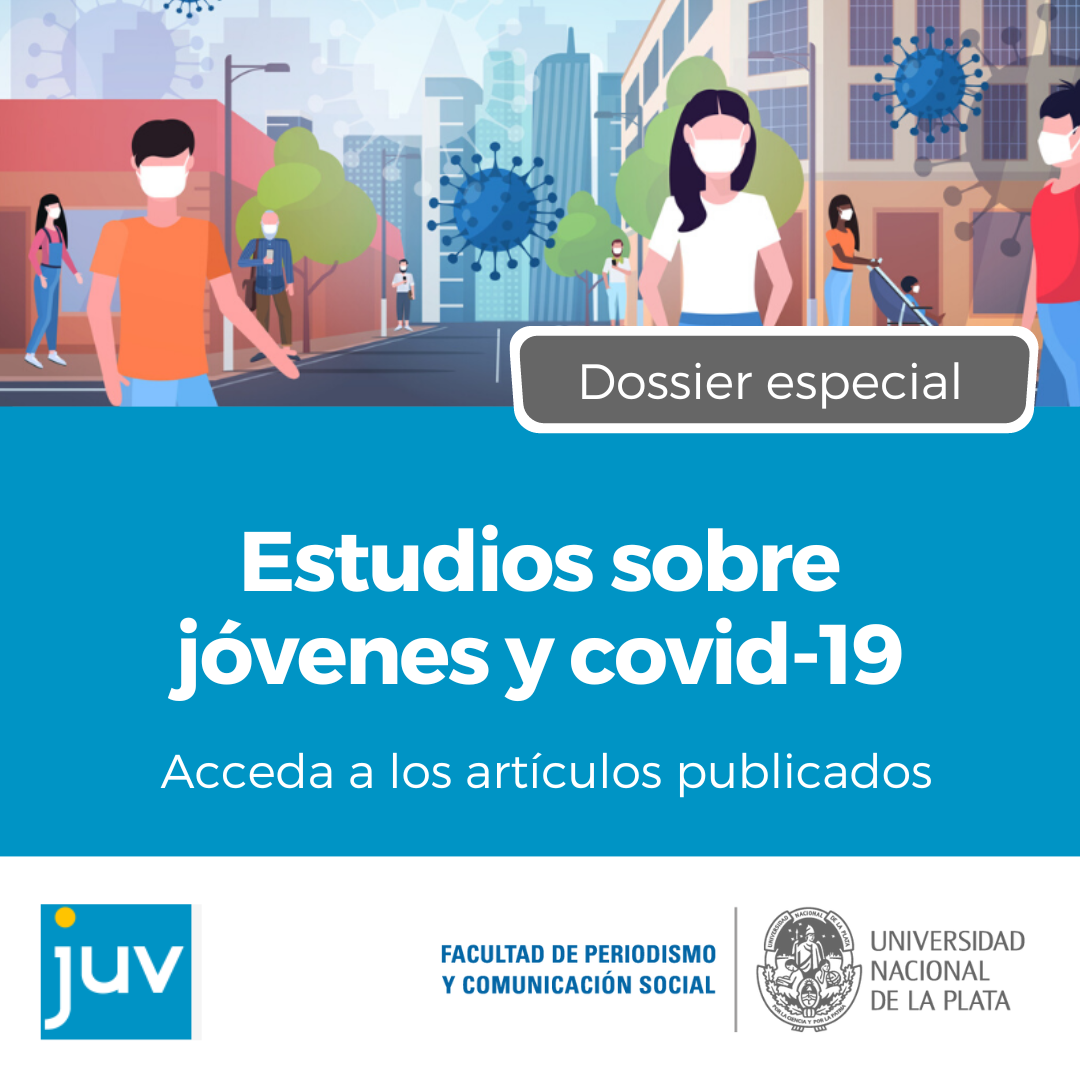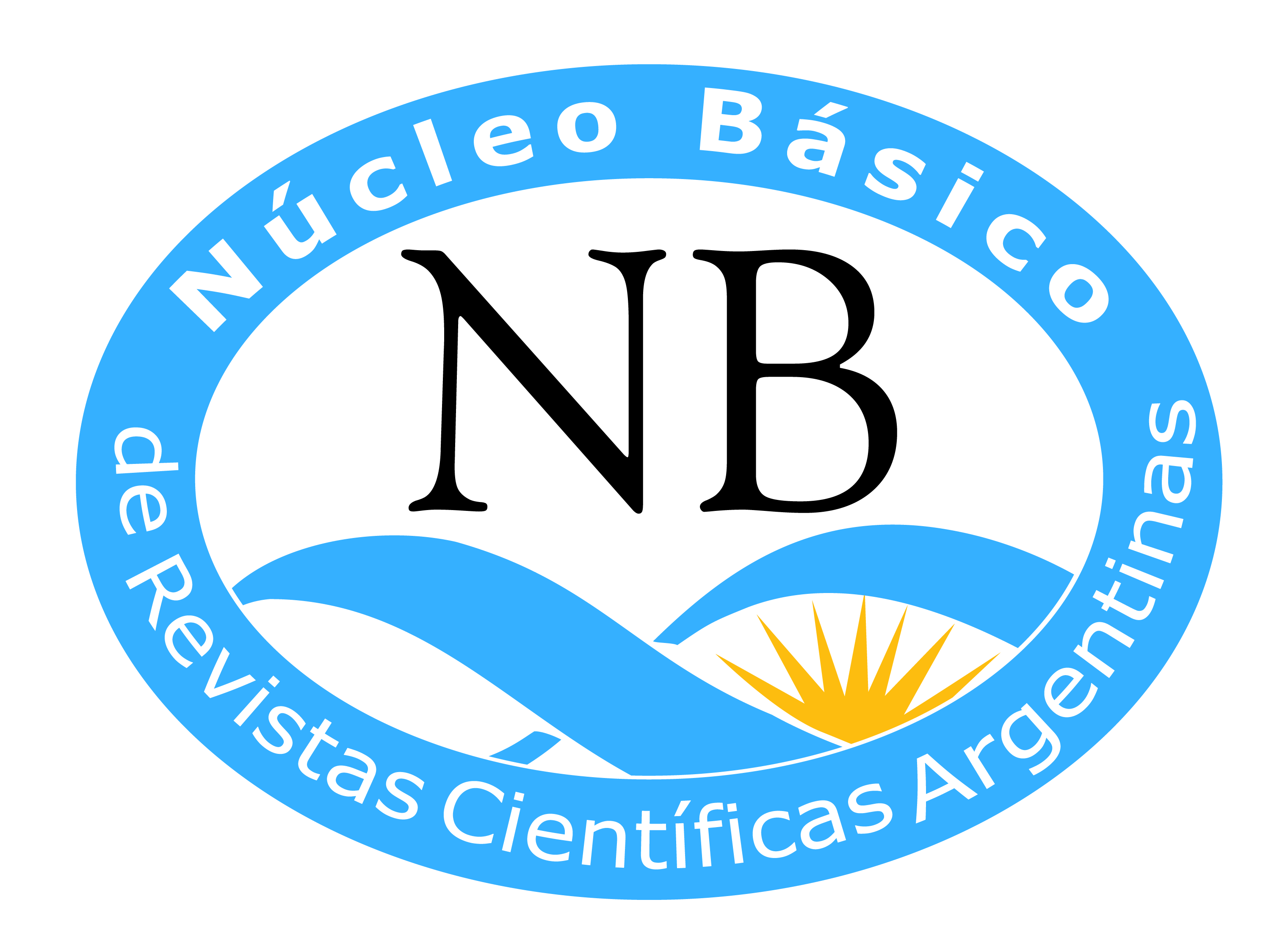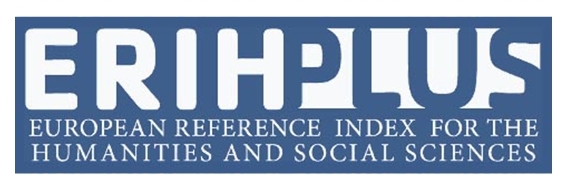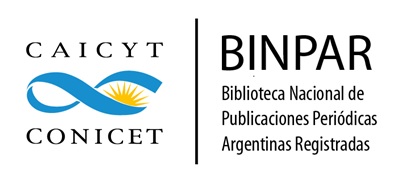About the Journal
Aim and SCOPE
SECTION Policies
PUBLICATION Frequency
EDITORIAL Process
PEER REVIEW Process
Inclusion e INDEXING
OPEN ACCESS Policy
ARCHIVE Policy
PRESERVATION Policy
INTEROPERABILITY Protocol
Code of ETHICS
ANTI-PLAGIARISM Policy
DATA AVAILABILITY Policy
Author GUIDELINES
Copyright Notice
Privacy Statement
--- --- ---
Revista Argentina de Estudios de Juventud is a peer-reviewed journal, which follows the continuous publication model, and is edited by the Institute of Communication Studies in Media, Culture and Power «Aníbal Ford» (INESCO) of the Faculty of Journalism and Social Communication of the Nacional University of La Plata (Buenos Aires, Argentina).
Its objective is to disseminate national and international academic productions that reflect emerging discussions on current problems linked to youth studies, from different theoretical and methodological approaches.
The journal publishes original and unpublished articles, essays, reports and bibliographic reviews by national and foreign authors. Aimed at researchers, teachers, professionals and postgraduate students, it is published in Spanish, Portuguese and English, as long as it is the mother tongue of the author.
The National University of La Plata, the main area in which the journal is published, supports the movement of open access to knowledge as a common good, so the publication provides immediate and complete access to all its content and its editions have no charges or charges for the author nor for the reader.
The materials are published under a Creative Commons Attribution-NonCommercial-ShareAlike 4.0 International License (CC BY-NC-SA 4.0) and according to its self-archiving policy, the deposit of preprint and postprint versions or the editor's version in institutional repositories is permitted. and thematic.
The journal promotes the use of gender-inclusive language and encourages submitted articles to avoid discrimination based on sex, social gender, or gender identity in particular.
---
Revista Argentina de Estudios de Juventud was created in 2009 and since then it has been published in electronic format.
Since issue number 10 (2016), all materials published in the magazine have a doi (Digital Object Identifier) and starting in 2023 the editorial team uses iThenticate, a tool for detecting coincidences that allows verifying and preventing plagiarism. Both resources are provided and financed by the National University of La Plata.
The final versions are offered in pdf, html and epub formats. This labeling process is carried out by the General Coordination of Scientific Journals of the UNLP through Marcalyc, the XML JATS marking system provided by the Redalyc Scientific Information System.
The journal holds the right to accept or reject the submitted contributions, in conformity with the journal’s subject and its editorial guidelines.
The views and opinions expressed in any article from the journal are exclusively those of the authors’ and do not reflect the view of any institution whatsoever.
--- --- ---
Articles
Interview
Reviews
Dossier
--- --- ---
Revista Argentina de Estudios de Juventud is a peer-reviewed journal which follows the continuous publication model.*
Articles are published individually and sequentially in the current issue.
Issues are closed in March and reopened in April every year.
Submissions are open all year round.
Dossier: the journal may invite specialists to provide thematic dossiers. These special sections are organized by coordinators appointed by the editorial team. The articles in said sections are published altogether and their publication does not interfere with the development of the main current issue.
* Publication mode adopted as of the 2019 volume (previous volumes were published annually)
--- --- ---
The contributions received by the journal are analyzed by the editorial team in order to ensure that they comply with the scope declared by the publication and its editorial requirements.
Those contributions that do not comply with these criteria will be rejected or, when the editor in charge considers it appropriate, returned to their authors to be adjusted.
The articles sent to sections under arbitration are forwarded to two specialists in the subject for revision (none of them belong to the editorial group).
--- --- ---
For the evaluation of the contributions received, the magazine uses the double-blind peer review process.
The revision is done by the evaluators within 30 days, approximately (this period might be longer depending on the result of the first revision).
As a result of this process, the articles may be accepted, accepted with modifications or rejected, based on appropriate arguments.
When the evaluators indicate the need to make changes to the articles for their eventual publication, these will be informed to the authors who will have to commit to make these modifications and send the new version within a period no longer than 30 days.*
If the reports made by the evaluators differ in essential aspects, the works will be sent to a third evaluator.
If necessary, the direction of the magazine will mediate to reach a final decision.
Once the work has been accepted, the authors will be informed of the issue in which it will be published.
*In these cases, the acceptance date will be set considering the date of the approval of the latest version.
--- --- ---
Revista Argentina de Estudios de Juventud is part of the following indexes, bases and catalogs:
NBR | Núcleo Básico de Revistas Científicas Argentinas
LATINDEX Catálogo 2.0 | Sistema Regional de Información en Línea para Revistas Científicas de América Latina, el Caribe, España y Portugal (México)
AmeliCA | Índice de revistas en consolidación (México)
ERIH PLUS | European Reference Index for the Humanities and the Social Sciences (Noruega)
DOAJ │ Directory of Open Access Journal (Suecia)
DIALNET Plus | Portal bibliográfico de la Universidad de La Rioja (España)
EBSCO | Base de datos de información científica (Estados Unidos y Canadá)
MIAR | Matriz de Información para el Análisis de Revistas (España)
LatinREV │ Red Latinoamericana de Revistas Académicas en Ciencias Sociales y Humanidades (FLACSO Argentina)
LatAm | Estudios latinoamericanos (México)
BASE │ Academic Search Engine of University of Bielefeld (Alemania)
OAJI │ Open Academic Journals Index (Rusia)
Mir@bel | Portal de Revistas Científicas en Acceso Abierto (Francia)
Malena | Políticas de jerarquización, acceso y archivo de las publicaciones científicas argentinas (Argentina)
AURA │ Políticas de apertura y derechos de explotación (México)
ULRICH’S PERIODICALS DIRECTORY
ROAD | Directorio de Recursos Científicos y Universitarios en Acceso Abierto
BINPAR │ Bibliografía Nacional de Publicaciones Periódicas Argentinas Registradas
BIBLIOTECA ELECTRÓNICA DE CIENCIA Y TECNOLOGÍA DE LA NACIÓN (MINCyT)
--- --- ---
The National University of La Plata promotes and supports the movement of open access to knowledge as a common good, under the principle that offering society scientific and academic production without restrictions contributes to a greater exchange of global knowledge.
In line with this policy, Revista Argentina de Estudios de Juventud is a diamond open access publication: it does not charge authors any fees for publishing and offers readers immediate and complete access to all its editions. without restrictions of any kind.
Since November 2018, the magazine has adhered to the Mexico Declaration in favor of the Latin American ecosystem of non-commercial open access and publishes its contents under the Creative Commons Attribution-NonCommercial–ShareAlike (CC BY-NC-SA) license to guarantee the protection of regional academic and scientific production in open access.
--- --- ---
Archive: the journal uses the LOCKSS system via PKP PN to create a distributed archive among partner libraries, allowing them to create permanent archives of the journal for preservation and restoration purposes.
Self-archiving: the journal allows self-archiving of the preprint and postprint versions or the editor's version in institutional and thematic repositories.
Policies registered in Malena and AURA.
--- --- ---
Works published in the journal are stored in SEDICI, the institutional repository of the National University of La Plata. Automatic backups, remote copies, format adaptation, integrity checks and any other activity required to ensure digital preservation are made through this repository. SEDICI’s preservation policies are available at http://sedici.unlp.edu.ar/pages/politicas#preservacion
--- --- ---
All publications on the Portal of Journalism and Communication Magazines, managed by the Directorate of Scientific Publications of the Faculty of Journalism and Social Communication (UNLP), incorporate interoperability protocols that allow their contents to be collected by other distribution systems, such as digital repositories and harvesters (harvesters).
Revista Argentina de Estudios de Juventud is published through the OJS (Open Journals System) and incorporates the OAI-PMH (Open Archive Initiative-Protocol for Metadata Harvesting) interoperability protocol at http://perio.unlp.edu.ar/ojs/index.php/revistadejuventud/oai having the possibility to get different metadata formats (rfc1807, nlm, marcxml, oai_marc y oai_dc) on entering the appertaining acronym in the URL as a value for the the metadataPrefix parameter.













.png)

























